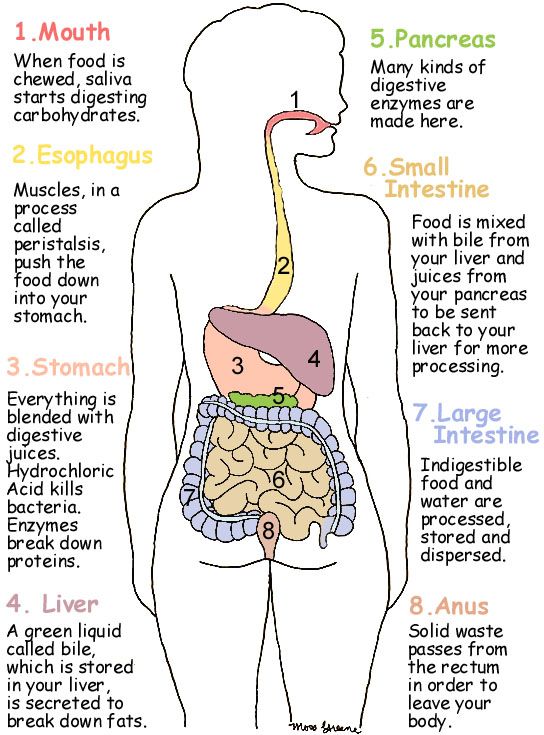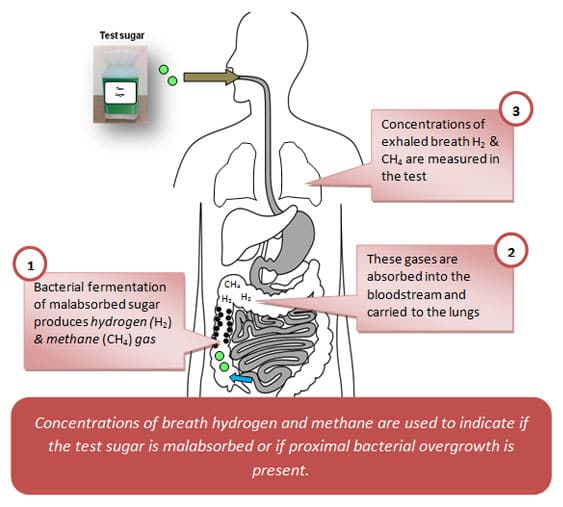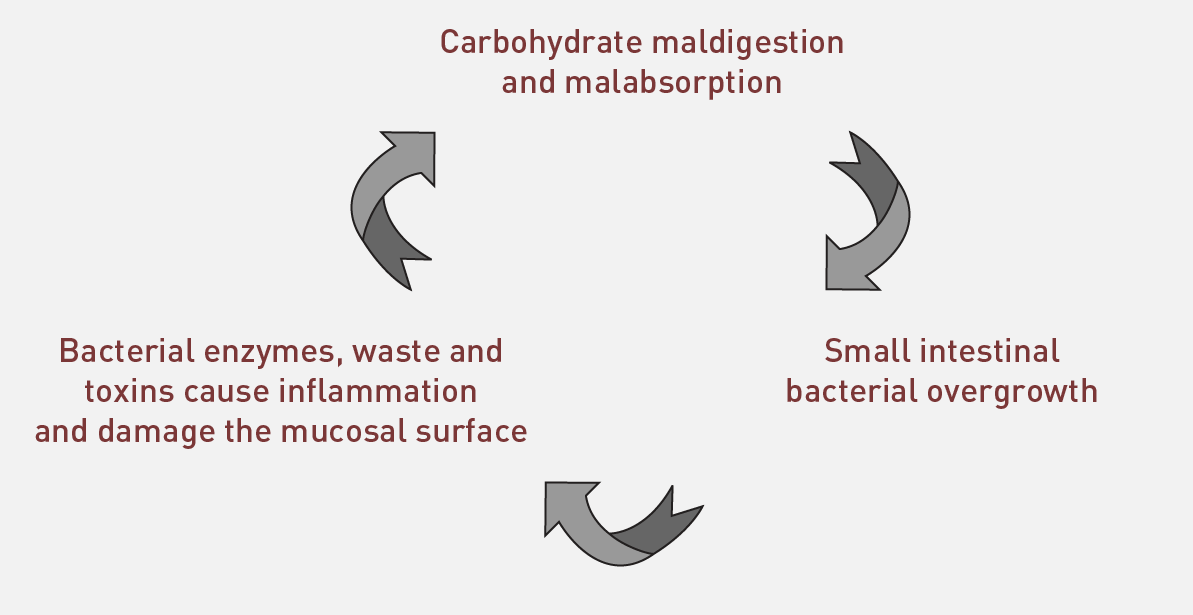 SIBO is a Common Medical Problem
SIBO is a Common Medical Problem
One of the most common digestive challenges I treat is small intestinal bacterial overgrowth (SIBO). SIBO is a complicated medical challenge, that may be the root cause of much of the irritable bowel syndrome (IBS), currently being diagnosed in the United States.
Recently, I did a YouTube video, that discussed how I treat SIBO at my offices in Los Angeles. To see my recent video on SIBO, you can watch it here.
So What Exactly is SIBO?
SIBO is a condition whereby an abnormal over-growth of bacteria accumulates in the small intestine.
In a normal digestive tract, there are few bacteria in the small intestine, while the large intestine is rich in bacteria. The small intestine is part of the upper digestive tract, and it is where most nutritional absorption takes place. Consequently, if there are too many bacteria in the upper digestive tract, they can inhibit our body’s ability to absorb nutrition from our food. Excess bacteria in the small intestine may also form gas after eating—resulting in pain and bloating.
Bacteria in the large intestine and colon help maintain healthy gut-flora, break down cellulose and produce important nutrients, like vitamin K. Bacteria in the large intestine and colon are also an important part of our digestive tracts complex immune system.
Why We Get SIBO?

Once food has been chewed and mixed with saliva, it is churned by the stomach. Saliva is rich with enzymes that help breakdown food aiding in nutritional absorption. Food is then passed on to the stomach, where it is further broken down by HCl and pepsin. From there, food travels to the small intestine, where it is mixed with bile and additional pancreatic enzymes. Most nutritional absorption takes place in the small intestine.
However, In people with SIBO, this early phase of digestion is often interrupted; leading to undigested food particles passing onto the small intestine where they become food for bacteria.
An over-growth of bacteria disrupts nutritional absorption in the small intestine, and leads to a host of other health challenges as well. Weak digestion is incredibly common in senior citizens, and is one of the main reasons we see poor nutritional absorption and wasting in seniors.
What are Some of the Health Challenges Associated with SIBO?
In addition to having trouble digesting our food, SIBO can also lead to gas and bloating, upset stomach—accompanied by a distention, maldigestion and malabsorption of nutrients. A person may also notice that they have an excessive amount of gas an bloating within an hour or so of consuming their meal.
SIBO can also affect peristalsis—the natural wave-like motion of the digestive tract. This may lead a person with SIBO to complain that they feel that things are “getting stuck” in the digestive tract. Or, they may experience constipation worsened after consuming fiber.
What are the Signs and Symptoms of SIBO?
In addition to gas and bloating, symptoms may also include upset stomach, and cramping—especially in the lower right side of your abdomen in an area known as, the ileocecal valve. The ileocecal valve separates the small (or upper digestive tract) from the large intestine. In patients with SIBO, this valve may be damaged or inflamed; allowing bacteria to move up the digestive tract leading to SIBO.
Additional symptoms of SIBO include, acne, migraine headaches, chronic joint pain and inflammation.
What Can Cause SIBO?
There are a number of reasons why a person may suffer from SIBO. Simply growing older may be a risk factor. This is because as we age, our organs begin to age as well. When our food is not properly digested, it moves to the small intestine where it becomes food for bacteria instead. Poor digestion is one of the main reasons we see wasting diseases in seniors.
Other risk factors for SIBO include, poor dental care, eating too quickly, chronic stress, and prior appendectomy surgery.
Testing for SIBO

Currently, the gold standard for testing SIBO is the lactulose breath test. The test can be done at home by consuming a small amount of the sugar lactulose and then breathing into a tube that collects the gasses produced by bacteria. The test is then shipped to the lab where it is analyzed, and then sent to your doctor.
The lactulose breath test allows us to see both the amount of bacteria in the small intestine, as well as the type of bacterial infection a person might have. Results can take about a week to be analyzed.
What Kinds of Bacteria Does the SIBO Test Detect?
The lactulose breath test can identify both hydrogen and methane producing bacteria. In my experience, less severe cases of SIBO often test positive or hydrogen only. However, in more severe cases of SIBO, a patient may test positive for methane and or hydrogen producing bacteria.
Treating SIBO with The 4 Rs: Remove, Replace, Reinoculate and Repair.
When it comes to treating SIBO, like most naturopathic doctors, I start by treating the cause. I want to find out why the patient has developed the disease in the first place. Usually, I begin with a protocol known as “the 4 R’s.”
First Remove the Cause
To being with, we want to remove the things that may be causing the health challenge in the first place. This may require treating the SIBO with herbal formulas that can clear the infection.
Foods high in complex carbohydrates and resistant starches may also need to be removed—as they can aggravate SIBO. Too many raw foods may also be hard for SIBO sufferers to digest. Consequently, I will often advice SIBO suffers to eat more cooked foods, and foods prepared in crockpots, to help support the digestive process.
Foods should be well cooked, and fruit should be eaten ripe. Patients should avoid beans and cruciferous vegetables—until symptoms are resolved. They may also wish to avoid starchy foods—unless they are well-cooked.
Many of my patients do very well preparing food using a crockpot. Well cooked and stewed foods are much easier to digest. I also advice patients with SIBO not over-eat. Instead, a reduced calorie diet, and chewing food extremely well, can be very helpful.
I also want to prescribe natural supplements that can be helpful in reducing SIBO.
Common Natural Antimicrobials for SIBO
I usually suggest taking antimicrobials before bed—when the stomach is empty—for best results. My favorite go to products to reduce SIBO are, Broad Spectrum Complex by Pharmax, Berberine by Thorne Research and Oregano oil with 80% carvacrol by Natural Factors. I typically have my patients abstain from eating 3 to 4 hours before bed, and give antimocrobials at night: in order for them to be effective.
There has been quite a bit written about the product Atrantil; because it has both antimicrobial properties, and seems to aid digestion. Atrantil also appears to help kill off bacteria that may be resistant to conventional antibiotics.
I first found out about this product from my patients who have tried Atrantil and gotten excellent results. And I have also written about this product in previous articles—like my article about healing digestive complaints in women over 40. You can read that article here.
Replace: Enzymes Should Always Be Given

I often discuss taking a good digestive enzyme with people over the age of 40. This is because poor pancreatic function is common as we age.
I like Digest Spectrum by Enzymatica because it is especially formulated for people who suffer from food sensitivities. I also like the fact that this product is both certified kosher and vegetarian—making it the ideal product for anyone on a strict diet. Digest Spectrum helps offer the person suffering from SIBO additional digestive support. Often, simply adding a digestive enzyme can dramatically reduce SIBO symptoms.
I also recommend Biogest by Thorne Research (because it contains digestive enzymes along with hydrochloric acid). And, it is a great product. This product is very popular with people who suffer from low stomach acid: a common problem in seniors.
Reinoculate: Replace The Bad Bacteria With The Good
I have looked at several great probiotics on the market. I usually choose HLC HIgh Potency Probiotics from Pharmax, when I am ready to begin prescribing probiotics to patients. This company is quite good, and their products have been independently tested for viability. I advice taking probiotics in the morning right after breakfast for best results.
Repair: Heal The Digestive Lining with Medical Foods
When it comes to repairing gut health, I like medical foods like Medi-Clear Plus by Thorne Research and Glutagenics by Metagenics. Both of these products are especially formulated to heal leaky gut: a common side-effect of SIBO. I advice people use these medical foods in the morning; to help rebuild the gut lining and strengthen gut health. These products also act as a meal replacement.
I advice a commitment of staying on my program for about 3 months in order to heal the gut. In older patients, it may be advisable to remain on probiotics and digestive enzymes indefinitely—as both are quite helpful in the digestive health of older individuals.
If you would like to find out more about my work, or schedule an office visit, please visit our website at DoctorWhimsy.com
We are available for both telemedicine appointments and at our Los Angeles Offices.
I look forward to helping you on your journey to health.



Roz
21 Mar 2018Hi,
I am desperately searching foe someone to help me with SIBO. I cannot afford a very expensive program but really need help. Can you please tell me what the cost of working with you is and if it is high, is there any way of reducing it? A person shouldn’t have to suffer or go without help because they are on a fixed budget.
Dr. Whimsy
24 Mar 2018Hi Roz, Thank you for reaching out to me. To find out my pricing, please look at the listing under making an appointment. If you click on the BookNow button, the prices are also listed.
Elaine
6 Apr 2018I have recently purchased CandiBactin-AR and CandiBactin-BR, two bottles nearly full , which I can’t digest. They are supposed to be good and are expensive. Would like to give them to Roz.
Jennie
23 Jun 2020Hi…i am from Thailand and want to learn more on how to treat sibo. How do i get in touch with u..